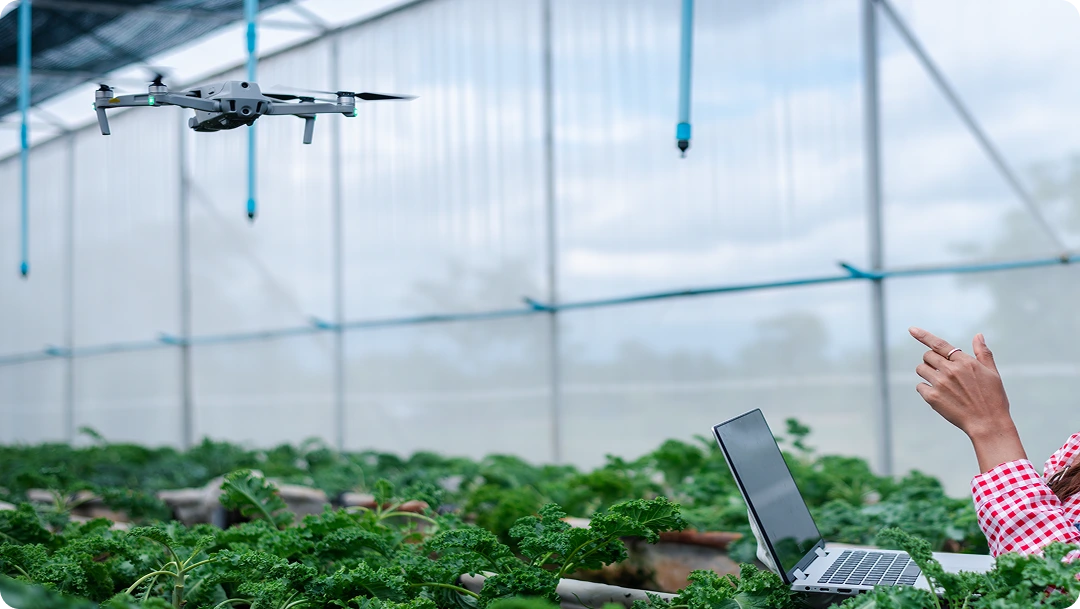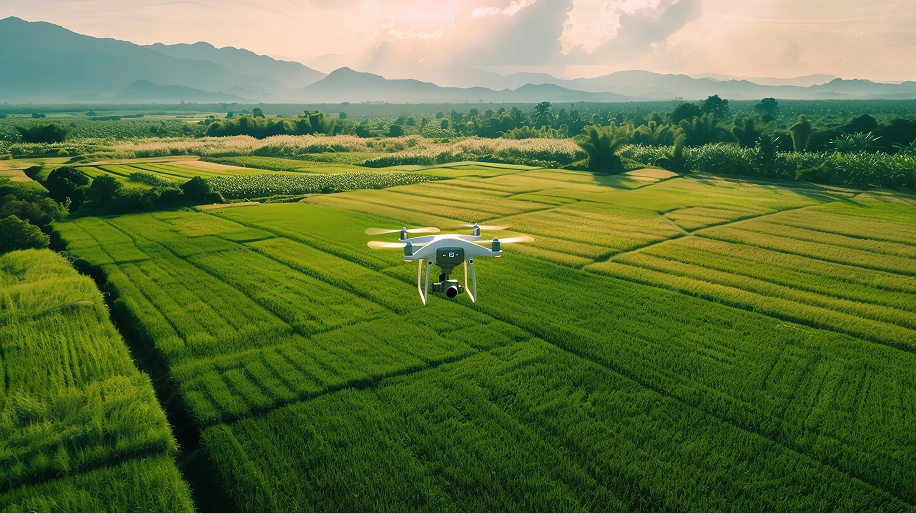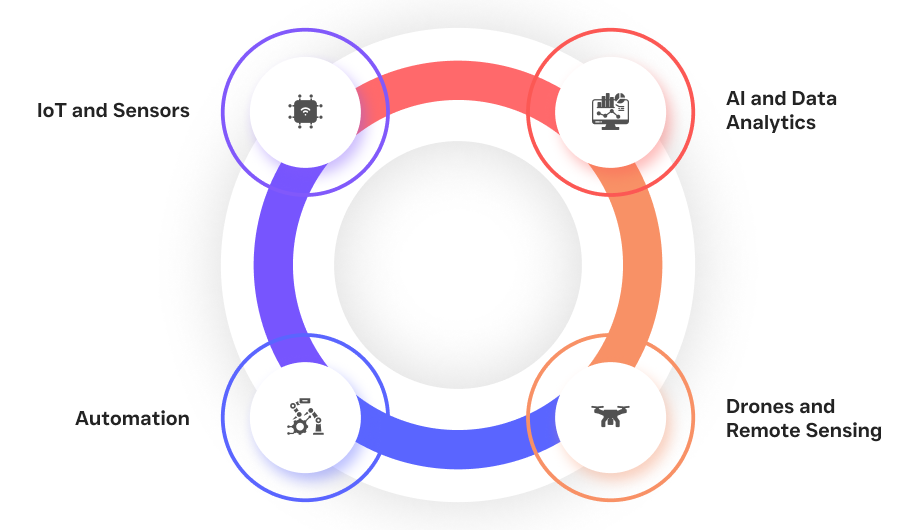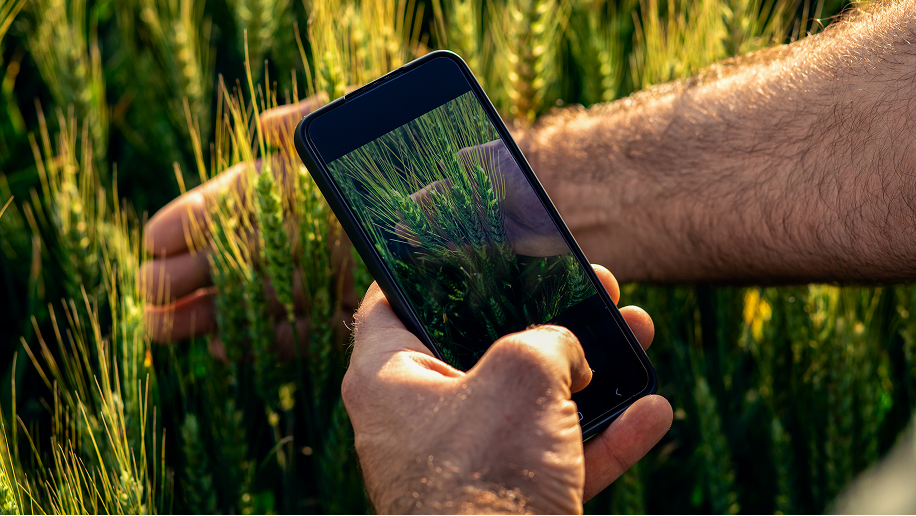

In India, where agriculture is the backbone of our economy, contributing about 18% to GDP, it supports millions of livelihoods. The shift for efficiency is reshaping the whole landscape. Agri-businesses are no longer sticking to old-school farming methods. They are jumping on board with the smart farm technology to boost yields, cut costs, and meet rising global demands. This isn’t just some shiny new trend. With climate challenges and scarce resources, it has become a must-have to stay in the game.

Smart farm technology uses automation, IoT, AI, and data analytics to optimize farming with real-time monitoring and data-driven decisions. Agritech companies in India are adopting it to tackle erratic monsoons, water shortages, a shrinking workforce, and soil degradation. Here’s why it’s critical:
This automated technology monitors everything from soil health to crop growth in real-time. A smart farming system connects these elements into a seamless network, allowing agriculture companies to make data-backed decisions without guesswork, boosting profits and global reach.

These devices track soil moisture, nutrient levels, and weather conditions, enabling precise management of water and fertilizer to enhance efficiency and reduce waste.
Machine learning predicts pest outbreaks or harvest times, helping agribusinesses minimize losses and maximize output.
Aerial technology is a component of precision agriculture technology that surveys fields, detects problems at an initial stage, and applies inputs precisely, thereby encouraging sustainable farming.
From robotic harvesters to GPS-guided tractors, these tools streamline operations, particularly in labor-scarce regions such as India.
India's agriculture sector is under pressure from erratic weather, water shortages, and market volatility. Smart farm technology addresses these head-on.
By automating routine tasks, agribusinesses can slash operational costs by up to 20-30%, based on industry benchmarks. This means higher profits without expanding land.
With global standards like the UN SDGs emphasizing eco-friendly farming, smart farming systems help track carbon footprints and reduce chemical use, opening doors to premium export markets. Learn more about Sustainable Farming Practices.
Predictive analytics in smart farm technology helps forecast risks such as droughts or diseases, enabling proactive measures to protect crops and livelihoods.
International buyers demand traceable, high-quality produce. Agriculture companies using these tools gain a competitive edge, accessing finance and partnerships tied to tech adoption. This tech helps an agriculture company boost profits and compete globally by making farms more efficient and sustainable

Smart farm technology leverages cloud platforms for easy data sharing among Farmer-Producer Organisations (FPOs) and stakeholders. Mobile apps empower field teams with instant insights, while blockchain ensures supply chain transparency and accountability.
For any agriculture company, it’s like having a high-tech toolkit to boost efficiency and meet global standards.
Cloud tech is like a digital hub for your farm. It lets Farmer-Producer Organisations (FPOs), field teams, and stakeholders share data effortlessly. Whether it’s soil test results or crop updates, everyone’s on the same page, making collaboration easier and decisions quicker.
Mobile apps are a farmer’s best friend. They provide real-time data, such as weather updates or crop health alerts, directly in the hands of field teams. With a tap, you get personalized crop advice or can upload geo-tagged photos, creating a digital trail that’s gold for audits and compliance
Blockchain is like an unchangeable diary for your farm’s journey. It tracks every step from planting to delivery, ensuring total transparency. This builds trust with buyers and regulators, demonstrating that your produce is ethically sourced and of high quality.
Real-time data from soil sensors and weather stations informs targeted irrigation and nutrient application, optimizing crop growth while minimizing resource use.
AI doesn’t just crunch numbers, it predicts the future. By analyzing data from your farm, it flags risks like pest outbreaks or suggests the best planting schedules. This takes the guesswork out of farming, giving you confidence to make bold moves.